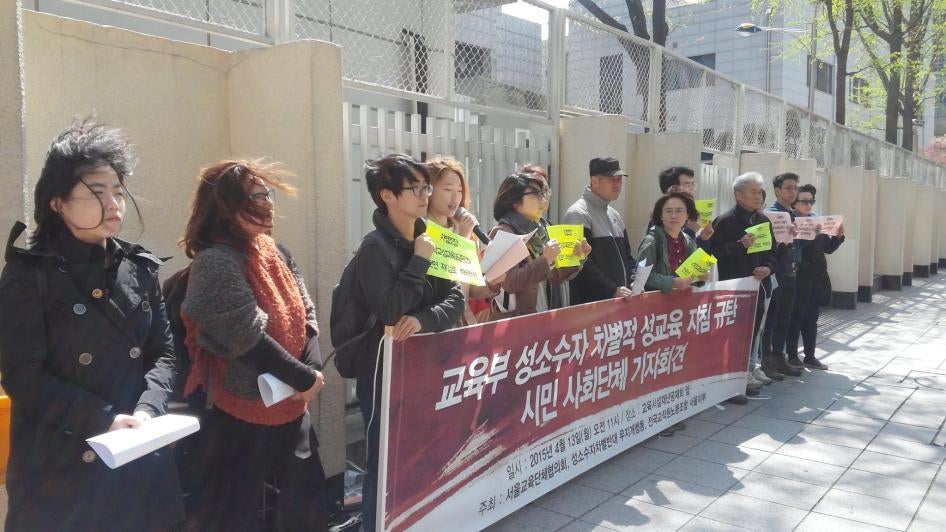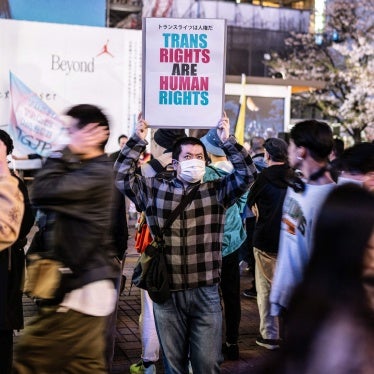Education ministry officials in Seoul said this week that South Korea’s new national sex education curriculum, due to roll out in March, will not mention homosexuality. This continues a backsliding that began nearly two years ago, when the government started training district education officers country-wide on new sex education guidelines that made no mention of sexual minorities.
Accurate and inclusive sexuality education is a means of ensuring children’s rights, including the right to health, because it helps reduce the rates of maternal mortality, unwanted pregnancies, and HIV.
HIV infections have increased sharply in South Korea since 2000, and infections are rising fastest among men in their 20s. The Korea Centers for Disease Control and Prevention in 2011 made it a priority to improve health education for workers, youth, teenagers, young adults, and the elderly to lower the risk of transmitting HIV and other infectious diseases.
Major United Nations agencies, such as the UN Population Fund, the World Health Organization, and UNESCO, recommend inclusive approaches to sexuality education – significantly different from what South Korea is moving to implement.
The South Korean government has attempted to clarify that the curriculum’s silence should not be taken as exclusionary, with an official saying that, “The fact that the guideline does not contain sexual minorities does not necessarily mean that teachers should not do the related lessons.”
But a curriculum that neglects inclusion of information about sexual orientation and gender identity fails students. Ad hoc or optional training programs for teachers are not an adequate substitute.
The guidelines contradict South Korea’s leadership role at the UN in recent years, where it has voted for Human Rights Council resolutions in 2011 and 2014 calling for an end to violence and discrimination based on sexual orientation and gender identity. It also supported a 2015 Human Rights Council resolution on domestic violence that called for inclusive sexuality education.
And just last month, Seoul played host to a UNESCO school violence and bullying symposium that included discussion of the high rates of school-based violence and discrimination against LGBT students. But despite playing host, South Korea did not join 24 other visiting governments in signing the call to action for “inclusive and equitable education.”
Seoul’s negligence on paper will imperil universal rights to health and education. The education ministry should reverse course before this curriculum begins to inflict its harm.









